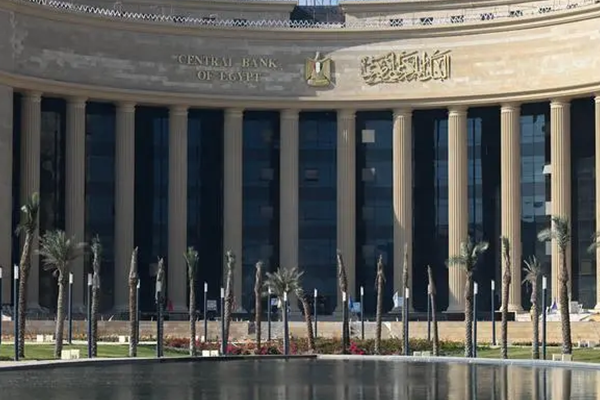8:00 - 9:00
Mon - Fri

14 August 2024
By Rob Harkavy
The Central Bank of Egypt (CBE) has clarified the rights of banks operating in Egypt to open and manage accounts for foreign nationals, including non-residents. This announcement is intended to ensure broader access to financial services for foreign individuals, regardless of their residency status, and to clarify existing banking regulations in the country.
The CBE’s bulletin, circulated to all banks, explicitly states that there are no legal or regulatory barriers to opening and managing bank accounts for non-resident foreign customers, provided that all relevant regulations and procedures are strictly followed. This includes adherence to the Central Bank’s guidelines and compliance with stringent anti-money laundering (AML) and counter-terrorist financing (CTF) regulations as mandated by Egypt’s Anti-Money Laundering and Terrorist Financing Unit (AMLTFU).
This latest bulletin builds on an earlier directive from 19 April 2019, which was issued in response to complaints from foreign customers regarding banks’ refusal to open accounts for them. At that time, the Central Bank noted that such practices were detrimental to customer relations and the banking sector’s reputation in Egypt. The refusal to serve non-resident customers was seen as a risk factor that could push financial transactions outside the formal banking system, thereby increasing the likelihood of unregulated and potentially illicit financial activities.
In its recent communication, the CBE emphasized the importance of maintaining the integrity and reputation of Egypt’s banking sector by ensuring equal access to services for all eligible customers, irrespective of their residency status. It also warned that banks failing to comply with these guidelines could face reputational damage and heightened regulatory scrutiny.
Egypt’s regulatory framework for AML and CTF is recognized by the Financial Action Task Force (FATF) for its strong alignment with international standards. The country’s Anti-Money Laundering Law (2002), which was amended in 2020, has enhanced enforcement mechanisms and broadened the scope of offenses covered. This legislation mandates strict due diligence, reporting, and record-keeping obligations for financial institutions to prevent money laundering and terrorist financing.
As the principal regulator of the banking sector, the CBE oversees the implementation of AML and CTF measures, regularly issuing guidelines, conducting audits, and imposing penalties on institutions that fail to meet these stringent requirements. The AMLTFU plays a crucial role in identifying and combating illicit financial activities, working in collaboration with both domestic and international agencies to enhance Egypt’s compliance with national and international AML/CTF obligations.
This regulatory vigilance is key to preserving the integrity of Egypt’s financial system and fostering a secure environment for both domestic and international banking activities.

26 June 2024
Ibrahim Kamal - Principal
On 26 June 2024, the Board of the Egyptian Financial Regulatory Authority (the “FRA”) issued two significant decisions: Decision No. 140 of 2024, which amends the requirements for granting and continuing licenses and the ownership of shares of companies involved in non-banking financial activities, and Decision No. 148 of 2024, which establishes specific rules for the listing and trading of shares of Special Purpose Acquisition Companies (SPACs). These decisions were published in the Egyptian Gazette on 23 July 2024 and became effective the following day.
SPACs, or Special Purpose Acquisition Companies, are investment vehicles that do not engage in any commercial operations. Instead, they are created solely to raise capital through an initial public offering (IPO) with the purpose of merging with or acquiring an existing company. The introduction of SPACs under FRA Decisions No. 140 and 148 marks a notable development in Egypt’s regulatory landscape for capital markets and non-banking financial activities.
By merging with or acquiring an existing company, a SPAC enables that company to gain the benefits of being associated with a listed entity, such as increased visibility, investor trust, and enhanced regulatory scrutiny. This is particularly advantageous for companies that might not have been able to list their shares directly due to their size or other limiting factors. Moreover, investors gain the comfort and security associated with investing in a listed company that is under strict regulatory supervision by the FRA and the stock exchange.
According to the FRA, a SPAC is defined as a venture capital entity established and licensed exclusively to acquire other companies. The funding for these acquisitions is obtained through capital increases offered for private subscription.
To list their shares on the Egyptian stock exchange, SPACs must submit a listing request within one month of obtaining their FRA license. Failure to do so will result in the license becoming ineffective. If a SPAC's shares are later delisted from the stock exchange, its license will be revoked, and the SPAC will be required to commence liquidation unless it provides reasonable grounds to the FRA to avoid liquidation.
SPACs must meet specific capital requirements to be listed on the Egyptian stock exchange. Initially, the SPAC’s issued and paid-up capital must not be less than Ten Million EGP. Within three months of listing, this capital must be increased to One Hundred Million EGP, with the capital increase shares being offered only to private subscribers, such as qualifying investors, certain governmental and financial entities, and financial institutions specified by the FRA.
The information memorandum provided to these subscribers must include sufficient details to enable informed decision-making. This includes targeted sectors, investment constraints, strategy, risks, related party rules, and management frameworks.
The SPAC is required to present a detailed acquisition plan for its target(s) to its general assembly within six months of being listed on the stock exchange. The acquisition itself must be executed within two years of the listing date. The SPAC may acquire a full or controlling stake in the target company or a majority of its share capital or voting rights. Subsequently, the SPAC's general assembly will decide whether to merge with the acquired entity or maintain it as a subsidiary.